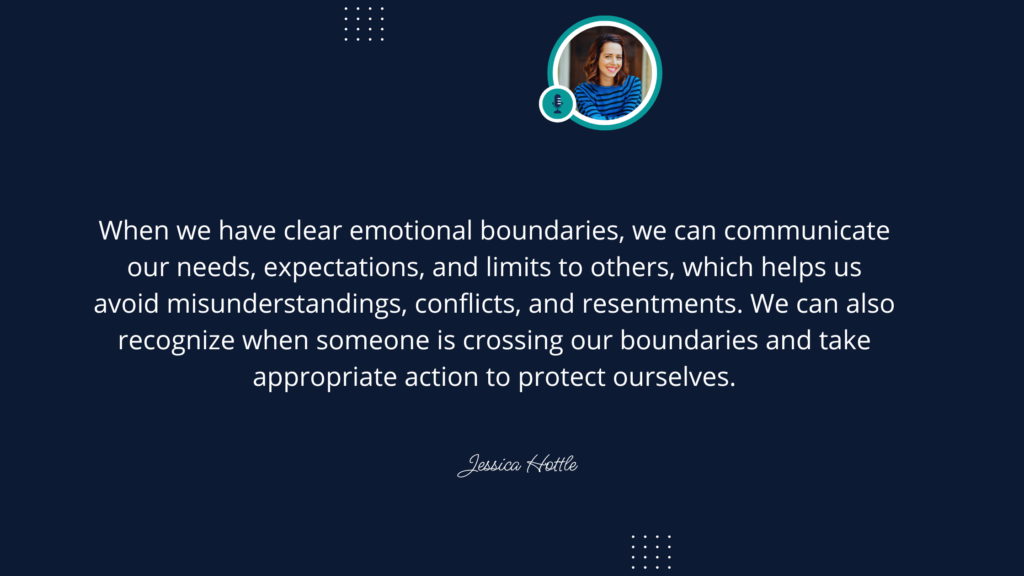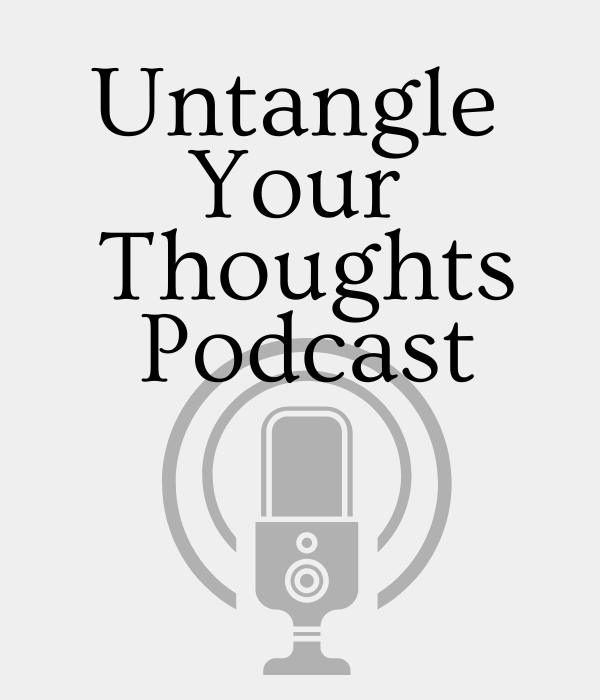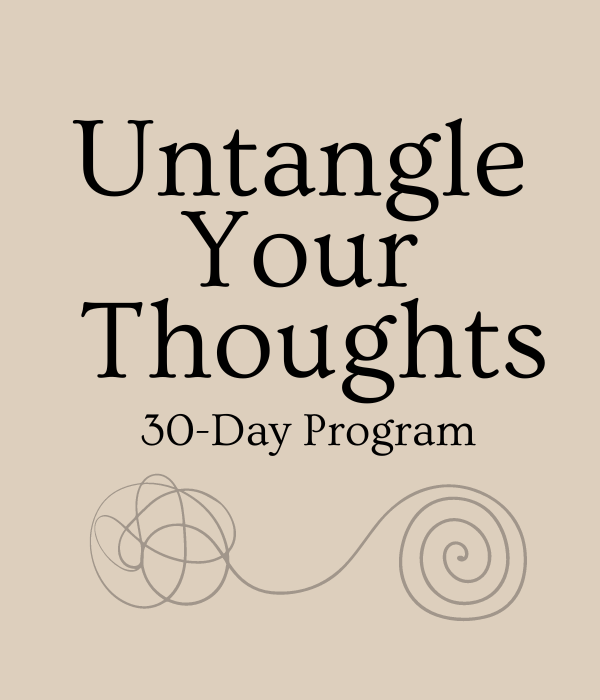Setting emotional boundaries is an essential part of maintaining our mental and spiritual well-being. Boundaries help us define our limits, protect ourselves from emotional harm, and maintain healthy relationships. In this blog post, we’ll explore the importance of setting emotional boundaries and how to do so in a way that aligns with our faith and walk with God.
Let me start by asking: Are you a people pleaser? Someone who has a hard time saying no?
Stay with me, then. I pray this post encourages your heart as I talk about emotional boundaries and why we need them. I know they are hard to set, let alone hard to keep in place.
However, I feel like when we hear the word “boundaries,” we think it’s a hard line drawn in the sand that no one can cross at any time. In other words, we believe emotional boundaries to be a place of seclusion and keeping people out of our lives.
Sure, some emotional boundaries we set may keep people at a safe distance from us. However, the point of boundaries is to let people in our lives know how far to go with us. When we want to create community and deepen relationships, we must communicate with others about our levels of safety and what protects both people involved from getting hurt any further.
Think for a moment about a bull and a chicken. Each animal is very different in nature, requiring a different type of fence (boundary line) to keep them protected and those around them protected. We have also heard boundaries being referred to as a house with a fence. Some people are allowed just in the yard, while others aren’t allowed to cross the fence, while others are at the kitchen table with you.
Every person we come in contact with is different in personality, character, and where there are in their walk with the Lord. In this, we recognize not everyone gets all of us at the same level.
Read that again: Not everyone gets all of you at the same level.
Note: In week 4 of my Spiritual Growth Mentorship, I teach everything about our relationship with others. Topics include conflict, offense, emotional boundaries, trust, love, communication, and forgiveness. I talk about these topics frequently in our Voxer thread with the women in my mentorship now. I’m personally inviting you to a different way of living. One not chained to fear and anxiousness or worry and doubt but one of choice and freedom.
Why Boundaries Are Crucial for Your Mental Health and Spiritual Well-Being
Here are some reasons why boundaries are crucial for your mental health and spiritual well-being:
Boundaries help you establish and maintain healthy relationships. When we have clear boundaries, we can communicate our needs, expectations, and limits to others, which helps us avoid misunderstandings, conflicts, and resentments. We can also recognize when someone is crossing our boundaries and take appropriate action to protect ourselves.
Boundaries help you prioritize your needs and values. By setting boundaries, we can make space for what matters most to us, whether it’s self-care, personal growth, spiritual practice, or fulfilling relationships. We can also say no to things that don’t align with our values or goals, which can reduce stress and increase our sense of purpose.
Boundaries help you manage stress and anxiety. When we have clear boundaries, we can reduce the amount of stress and pressure we feel from others or from external circumstances. We can also create a sense of safety and predictability in our lives, which can lower anxiety and improve our overall well-being.
Boundaries promote spiritual growth and connection. By establishing boundaries, we can create a sacred space for our spiritual practice, whether it’s meditation, prayer, or reflection. We can also set boundaries around our relationships and activities that align with our spiritual values, which can deepen our sense of purpose and connection to a higher power.
The Importance of Emotional Boundaries
Some would define boundaries as rules and limits we set for ourselves in relationships. A boundary doesn’t just exclude or take away. It helps us recognize our capacity and willingness to surrender what is in our control (like time, our schedules) and outside of our control (other people and their reactions and choices). Boundaries show honor and respect to both people (or a collective group of people).
Let’s take a moment to look at what the bible says. We can see that boundaries also have to do with self-control. The Bible commands us to control ourselves. However, our human nature desires to control others (Titus 2:12).
Therefore, personal boundaries help to limit our selfish instinct to control or manipulate others. Likewise, boundaries protect us from those who have no self-control and who wish to control us. We don’t try and get people to respect us. We create a healthy environment by showing respect.
We set the standards for how we want to be treated by the way we treat others, which can come from setting emotional boundaries.
Another boundary we see in the OT is knowing our capacity and setting a limit. Moses’ father-in-law, Jethro, tells Moses he can not be the only person the people of Irsael go to for solving disputes. He will wear himself. He is limited. Moses had his own limits (boundaries he needed to set as a leader) while also delegating the tasks to those who were equipped to handle the job. (Read Exodus 18:17-23.)
We can set boundaries for our schedules, our relationships, our work, each one recognizing our limits and capacity with where we are in our healing journey and the season of life we are in.
Note: Emotional boundaries help us to walk in forgiveness. God commands us to forgive as we have been forgiven, but that doesn’t mean trust and reconciliation are restored at the same time.

How to Set Emotional Boundaries in a Faith-Based Way
A person with clear, healthy emotional boundaries communicates what is and is not permissible to others. Setting healthy emotional boundaries may look like this, “This is how far you can go with me. Any further, and you have no right to this space.” Setting healthy boundaries allows us to continue to love despite what the other person says or does.
An important step I learned in setting emotional boundaries to preserve relationships is to know how to respond instead of reacting to fear and pain. Fear is from the devil; he would love nothing more than to keep you isolated and alone. If we continue to live through fear, we will continue to create distance and disconnection from those around us.
When others respond to my boundaries, I am often made to be the villain, the bad guy. Someone who is told I don’t know how to love like God does because I say no, this is not okay.
I’ve learned to process those lies that come. Often the victim of a situation becomes a villain for speaking up and saying no more or only this far.
Knowing this, we must also recognize that we can not control other people and their response to what we set. Many times they will not understand.
God also gives us the freedom to choose to live within His boundaries or outside of them, and to live outside of God’s boundaries means to accept the consequences. Living inside God’s boundaries brings blessing, and living outside of them brings destruction and death (Romans 6:23)
Boundaries are a fruit of submitting to God’s will, and He will enable us to make godly choices (even if we love people at a distance).
Healthy emotional boundaries lovingly offer choices to others rather than attempting to control them. (Love does not demand its own way. Which would be the righteous way versus my way.)
For example, you can help someone know what level of connection they get with you. If their behavior towards you (or not towards you – their actions or if they are living in sin) could affect you, you lovingly offer a choice of how to connect with you in ways that are best.
Godly emotional boundaries clearly communicate their expectations and the reasons behind them.
For example, when you communicate with someone else, you let them know you are not okay when they talk to you in a specific way. If they continue to use those words, you will excuse yourself until they can speak with you differently. You are choosing to use self-control. You are choosing to honor them as an image bearer that they are and that you are despite what they are doing and saying to you.
Emotional Boundaries and Faith: A Guide to Protecting Your Mental Health
Simple ways to state boundaries:
- No.
- Thanks for much for asking, but I am not available.
- Thank you for thinking of me but not at this time.
- Sorry, that does not work for me.
- I’m not comfortable with that. I will have to pass.
Biblical emotional boundaries clearly define the consequences of a violation of their borders.
Much like when we live through our sins, we experience the consequence of our sins. When someone violates our boundaries, we can tell them how this impacts the relationship and why it is not okay.
Boundaries require verbal communication to institute a healthy relationship. We can’t assume others know where we stand, what we stand for, what hurts us, or how they affect us in specific ways.
Emotional boundaries help to keep us emotionally healthy and surrendered to the Word of God.
Emotional boundaries do not cover up our pain or make excuses not to deal with the pain. Emotional boundaries help create a healthy space for the pain to heal while still offering connection.
For love to be true, genuine, and purely motivated, boundaries must exist in relationships.
Resources and Books on Boundaries
For more, get my book Face Off with Your Feelings or learn more about my Spiritual Growth Mentorship.
Boundaries by Henry Cloud
Keep Your Love On by Danny Silk
Rooting for you,






